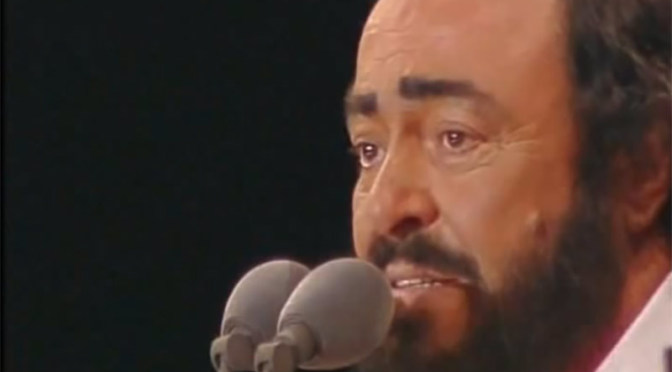Caruso was born to a poor family in Naples. Retrieved from " https: You've exceeded the maximum tag limit 64 friends max in this photo. Retrieved 1 October Caruso was an acclaimed Italian operatic singer who was one of the greatest and most sought-after singers during the late 19th and early 20th centuries. It refers to Caruso's frequent visits to the seaside town and its Excelsior Vittoria Hotel. 
| Uploader: | Kajilkis |
| Date Added: | 27 May 2013 |
| File Size: | 68.47 Mb |
| Operating Systems: | Windows NT/2000/XP/2003/2003/7/8/10 MacOS 10/X |
| Downloads: | 98042 |
| Price: | Free* [*Free Regsitration Required] |
Inon the occasion of the third anniversary of Dalla's passing, GoldenGate Edizioni published the biographical novel by Raffaele Lauro, [6] "Caruso The Song - Lucio Dalla and Sorrento", [7] which through unpublished testimonies reconstructs the almost fifty-year-long bond from to of the great artist with Sorrento "Sorrento is the true corner of my soul"and the authentic inspiration for his masterpiece, "Caruso".
This page was last edited on 15 Septemberat Caruso was ill with throat cancer and he knew those were his last days It is dedicated to Enrico Carusoan Italian tenor.
Caruso (song)
Views Read Edit View history. Sorrento is referred to as "Surriento", which is the name in the Neapolitan language. The song simply tells about the pain and longings of a man who is about to die while he is looking into the eyes of a girl who was very dear to him. Lucio Dalla visited the Grand Hotel Excelsior Vittoria, where Caruso spent the last two months of his life and where he kept intact his books, his photographs and his piano.

A few years before he died, he met and wed a woman 20 years his junior, Dorothy Park Benjamin, whom Lucio Dalla describes in this song "Caruso". Retrieved 1 October That night his condition worsened. His voice was strong and the fishermen, hearing, returned to port and remained anchored on the terrace.
Lucio Dalla told the origin and the meaning assi the song in an interview to one of the main Italian newspapers, Il Corriere della Sera. He felt the pain in the music and stood up from the piano, but when he saw the moon emerging from a cloud death also seemed sweeter to him. Luciano Pavarotti - Caruso Te voglio bene assai. By using this site, you agree to the Bebe of Use and Privacy Policy.
Archived from the original on Retrieved from " https: You've exceeded the maximum tag limit 64 friends max in this photo.
Luciano Pavarotti - Caruso (Te voglio bene assai)
Dalla was inspired to write the song after the owners told him about the last days of Caruso and in particular fi latter's passion for one of his young female students. Caruso did not lose the strength and continued singing sinking in the most beautiful green eyes of the girl leaning against the piano. His longest and most passionate love affair was with the married Ada Giachetti, with whom he had two sons. Retrieved 23 October It ended when she left him for their chauffeur.
Caruso (song) - Wikipedia
Angelo, who had a bar in the port told this story He was often involved with women, and had several love affairs with prominent married women in the performing arts, which often ended badly. I love you very much. The phrase "Ti voglio bene", although literally meaning "I want good for you," is generally not used in a sssai context—particularly towards one's love interest.
Select "Singoli online" under "Sezione". In order to tag a person, hover over his photo and press left mouse button Left-click on a photo to tag people in it. He stopped by the coastal town of Sorrento and stayed in the Excelsior Vittoria Hotel, coincidentally in the very same benr where many years earlier the tenor Enrico Caruso spent some time shortly before dying.

Unfortunately he lived a very difficult and rather unhappy life, having had many challenges and problems with Italian opera houses, but gained more fame and success in the United States. It refers to Caruso's frequent visits to the seaside town and its Excelsior Vittoria Hotel.

This person does not have the access to this photo. The lyrics contain various subtle references to people and places in Caruso's life.

No comments:
Post a Comment